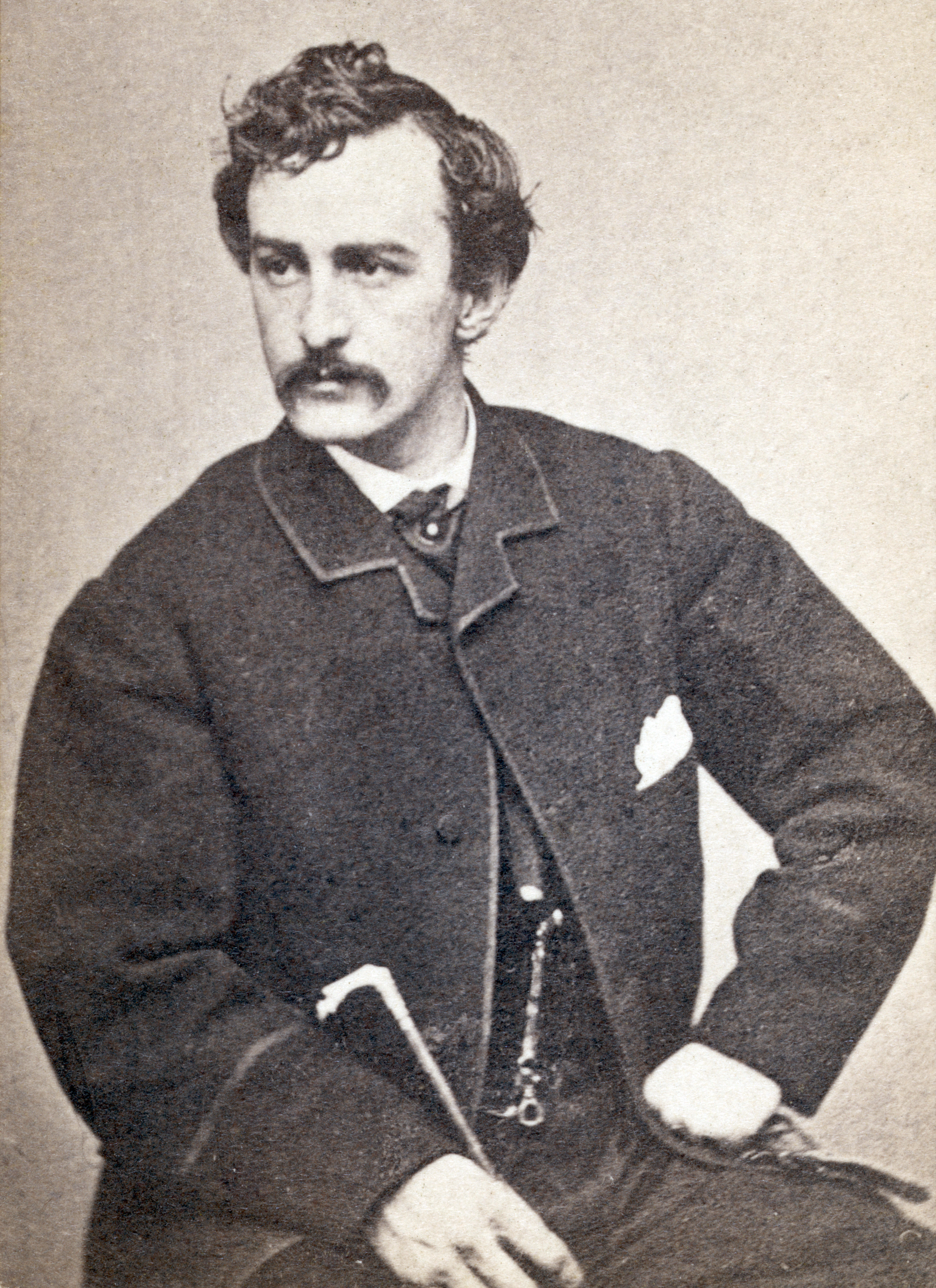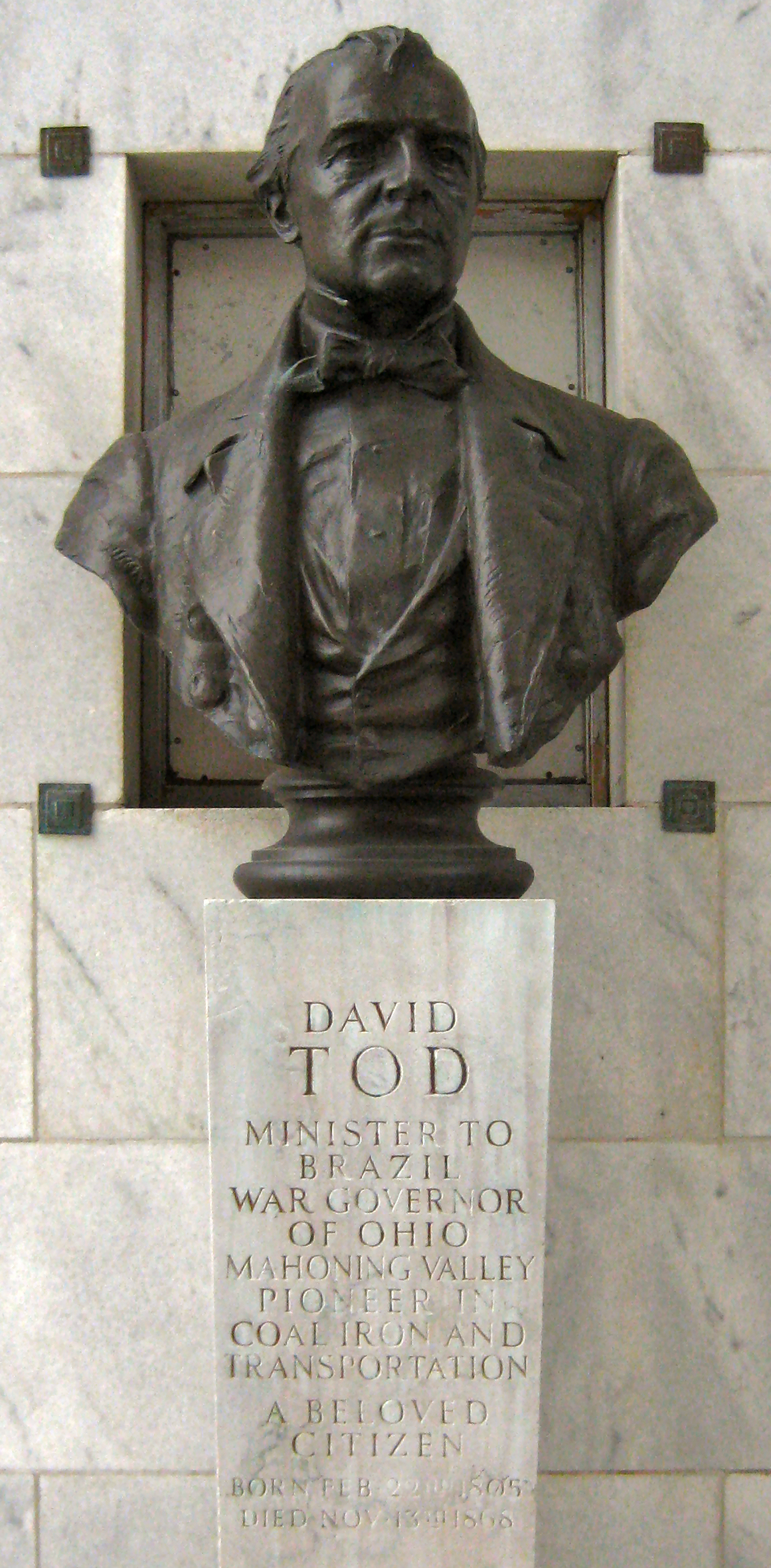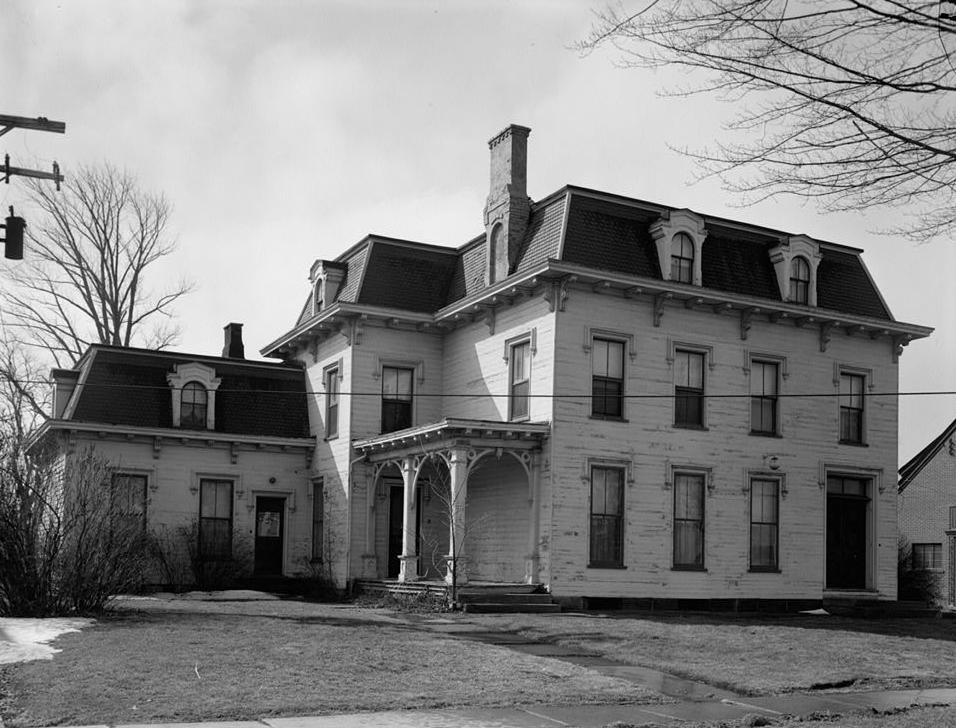|
War Democrat
War Democrats in American politics of the 1860s were members of the Democratic Party who supported the Union and rejected the policies of the Copperheads, or Peace Democrats. The War Democrats demanded a more aggressive policy toward the Confederacy and supported the policies of Republican President Abraham Lincoln when the American Civil War broke out a few months after his victory in the 1860 presidential election. Ohio In the critical state elections in Ohio in 1862, the Republicans and War Democrats formed the National Union Party. This led to victory over the Democrats, led by Copperhead Clement Vallandigham; however, it caused trouble for Radical Republican Senator Benjamin Wade's reelection bid. War Democrats opposed Wade's radicalism, and Wade refused to make concessions to their point of view. He was narrowly reelected by the legislature. In 1863, the Ohio gubernatorial campaign drew national attention. Ohio Republicans and War Democrats were dissatisfied w ... [...More Info...] [...Related Items...] OR: [Wikipedia] [Google] [Baidu] |
Andrew Johnson
Andrew Johnson (December 29, 1808July 31, 1875) was the 17th president of the United States, serving from 1865 to 1869. The 16th vice president, he assumed the presidency following the assassination of Abraham Lincoln. Johnson was a Southern Democrat who ran with Lincoln on the National Union Party ticket in the 1864 presidential election, coming to office as the American Civil War concluded. Johnson favored quick restoration of the seceded states to the Union without protection for the newly freed people who were formerly enslaved, as well as pardoning ex-Confederates. This led to conflict with the Republican Party-dominated U.S. Congress, culminating in his impeachment by the House of Representatives in 1868. He was acquitted in the Senate by one vote. Johnson was born into poverty and never attended school. He was apprenticed as a tailor and worked in several frontier towns before settling in Greeneville, Tennessee, serving as an alderman and mayor before bei ... [...More Info...] [...Related Items...] OR: [Wikipedia] [Google] [Baidu] |
American Civil War
The American Civil War (April 12, 1861May 26, 1865; also known by Names of the American Civil War, other names) was a civil war in the United States between the Union (American Civil War), Union ("the North") and the Confederate States of America, Confederacy ("the South"), which was formed in 1861 by U.S. state, states that had Secession in the United States, seceded from the Union. The Origins of the American Civil War, central conflict leading to war was a dispute over whether Slavery in the United States, slavery should be permitted to expand into the western territories, leading to more slave states, or be prohibited from doing so, which many believed would place slavery on a course of ultimate extinction. Timeline of events leading to the American Civil War, Decades of controversy over slavery came to a head when Abraham Lincoln, who opposed slavery's expansion, won the 1860 presidential election. Seven Southern slave states responded to Lincoln's victory by seceding f ... [...More Info...] [...Related Items...] OR: [Wikipedia] [Google] [Baidu] |
Reconstruction Era
The Reconstruction era was a period in History of the United States, US history that followed the American Civil War (1861-65) and was dominated by the legal, social, and political challenges of the Abolitionism in the United States, abolition of slavery and reintegration of the former Confederate States of America, Confederate States into the United States. Reconstruction Amendments, Three amendments were added to the United States Constitution to grant citizenship and equal civil rights to the Freedmen, newly freed slaves. To circumvent these, former Confederate states imposed poll taxes and literacy tests and engaged in terrorism in the United States, terrorism to intimidate and control African Americans and discourage or prevent them from voting. Throughout the war, the Union was confronted with the issue of how to administer captured areas and handle slaves escaping to Union lines. The United States Army played a vital role in establishing a Labour economics, free lab ... [...More Info...] [...Related Items...] OR: [Wikipedia] [Google] [Baidu] |
Assassination Of Abraham Lincoln
On April 14, 1865, Abraham Lincoln, the 16th president of the United States, was shot by John Wilkes Booth while attending the play '' Our American Cousin'' at Ford's Theatre in Washington, D.C. Shot in the head as he watched the play, Lincoln died of his wounds the following day at 7:22 a.m. in the Petersen House opposite the theater. He was the first U.S. president to be assassinated. His funeral and burial were marked by an extended period of national mourning. Near the end of the American Civil War, Lincoln's assassination was part of a larger political conspiracy intended by Booth to revive the Confederate cause by eliminating the three most important officials of the federal government. Conspirators Lewis Powell and David Herold were assigned to kill Secretary of State William H. Seward, and George Atzerodt was tasked with killing Vice President Andrew Johnson. Beyond Lincoln's death, the plot failed: Seward was only wounded, and Johnson's would-be att ... [...More Info...] [...Related Items...] OR: [Wikipedia] [Google] [Baidu] |
United States House Of Representatives
The United States House of Representatives is a chamber of the Bicameralism, bicameral United States Congress; it is the lower house, with the U.S. Senate being the upper house. Together, the House and Senate have the authority under Article One of the United States Constitution, Article One of the Constitution of the United States, U.S. Constitution to pass or defeat federal legislation, known as Bill (United States Congress), bills. Those that are also passed by the Senate are sent to President of the United States, the president for signature or veto. The House's exclusive powers include initiating all revenue bills, Impeachment in the United States, impeaching federal officers, and Contingent election, electing the president if no candidate receives a majority of votes in the United States Electoral College, Electoral College. Members of the House serve a Fixed-term election, fixed term of two years, with each seat up for election before the start of the next Congress. ... [...More Info...] [...Related Items...] OR: [Wikipedia] [Google] [Baidu] |
United States Senate
The United States Senate is a chamber of the Bicameralism, bicameral United States Congress; it is the upper house, with the United States House of Representatives, U.S. House of Representatives being the lower house. Together, the Senate and House have the authority under Article One of the United States Constitution, Article One of the Constitution of the United States, U.S. Constitution to pass or defeat federal legislation. The Senate also has exclusive power to confirm President of the United States, U.S. presidential appointments, to approve or reject treaties, and to convict or exonerate Impeachment in the United States, impeachment cases brought by the House. The Senate and the House provide a Separation of powers under the United States Constitution, check and balance on the powers of the Federal government of the United States#Executive branch, executive and Federal judiciary of the United States, judicial branches of government. The composition and powers of the Se ... [...More Info...] [...Related Items...] OR: [Wikipedia] [Google] [Baidu] |
1864 United States Presidential Election
United States presidential election, Presidential elections were held in the United States on November 8, 1864, near the end of the American Civil War. Incumbent President Abraham Lincoln of the National Union Party (United States), National Union Party easily defeated the History of the Democratic Party (United States), Democratic nominee, former General George B. McClellan, by a wide margin of 212–21 in the electoral college, with 55% of the popular vote. For the election, the History of the Republican Party (United States), Republican Party and some Democrats created the National Union Party, especially to attract War Democrats. Despite some intra-party opposition from Salmon Chase and the Radical Republicans, Lincoln won his party's nomination at the 1864 National Union National Convention. Rather than re-nominate Vice President Hannibal Hamlin, the convention selected Andrew Johnson of Tennessee, a War Democrat, as Lincoln's running mate. John C. Frémont, who had been t ... [...More Info...] [...Related Items...] OR: [Wikipedia] [Google] [Baidu] |
David Tod
David Tod (February 21, 1805 – November 13, 1868) was an American politician and industrialist from the U.S. state of Ohio. As the 25th governor of Ohio, Tod gained recognition for his forceful and energetic leadership during the American Civil War. A Democrat who supported the war effort, Tod helped to maintain a fragile alliance between the state's Republicans and War Democrats and took steps to secure Ohio's borders. In 1863, the state's Union Party did not nominate Tod for a second term because of his tepid support for emancipation and his unpopularity among the state's myriad political factions. After completing his two-year term as Ohio governor, Tod turned down an invitation to serve in the government of President Abraham Lincoln as Secretary of the Treasury, citing poor health. Tod died of a stroke in 1868, three years after the end of the war and was interred in Oak Hill Cemetery (Youngstown, Ohio). A biography of David Tod by Joseph Lambert Jr. was published in 2 ... [...More Info...] [...Related Items...] OR: [Wikipedia] [Google] [Baidu] |
1863 Ohio Gubernatorial Election
The 1863 Ohio gubernatorial election was held on October 13, 1863. National Union nominee John Brough defeated Democratic nominee Clement Vallandigham with 60.61% of the vote. The campaign was dominated by Vallandingham's May 5 arrest, conviction, and deportation for a speech critical of President Abraham Lincoln and the conduct of the American Civil War. He was nominated in absentia by the Democratic Party. General election Candidates * John Brough, National Union * Clement Vallandigham, Democratic Results References {{Reconstruction Era 1863 Ohio Ohio ( ) is a U.S. state, state in the Midwestern United States, Midwestern region of the United States. It borders Lake Erie to the north, Pennsylvania to the east, West Virginia to the southeast, Kentucky to the southwest, Indiana to the ... 1863 Ohio elections October 1863 ... [...More Info...] [...Related Items...] OR: [Wikipedia] [Google] [Baidu] |
Benjamin Wade
Benjamin Franklin "Bluff" Wade (October 27, 1800March 2, 1878) was an American lawyer and politician who served as a United States Senator for Ohio from 1851 to 1869. He is known for his leading role among the Radical Republicans.Benjamin Wade ''American Battlefield Trust''. Retrieved February 13, 2022. Had the 1868 of led to a conv ... [...More Info...] [...Related Items...] OR: [Wikipedia] [Google] [Baidu] |
Radical Republican
The Radical Republicans were a political faction within the Republican Party originating from the party's founding in 1854—some six years before the Civil War—until the Compromise of 1877, which effectively ended Reconstruction. They called themselves "Radicals" because of their goal of immediate, complete, and permanent eradication of slavery in the United States. However, the Radical faction also included strong currents of nativism, anti-Catholicism, and support for the prohibition of alcoholic beverages. These policy goals and the rhetoric in their favor often made it extremely difficult for the Republican Party as a whole to avoid alienating large numbers of American voters of Irish Catholic, German, and other White ethnic backgrounds. In fact, even German-American Freethinkers and Forty-Eighters who, like Hermann Raster, otherwise sympathized with the Radical Republicans' aims, fought them tooth and nail over prohibition. They later became known as " Stalwarts". ... [...More Info...] [...Related Items...] OR: [Wikipedia] [Google] [Baidu] |
Clement Vallandigham
Clement Laird Vallandigham ( ; July 29, 1820 – June 17, 1871) was an American lawyer and politician who served as the leader of the Copperhead (politics), Copperhead faction of Opposition to the American Civil War, anti-war History of the United States Democratic Party, Democrats during the American Civil War. He served two terms for Ohio's 3rd congressional district in the United States House of Representatives. In 1863, he was convicted by an Army court martial for publicly expressing opposition to the war and exiled to the Confederate States of America. He ran for governor of Ohio in 1863 from exile in Canada, but was defeated. Vallandigham died in 1871 in Lebanon, Ohio, after accidentally shooting himself in the abdomen with a pistol. Early life Clement Laird Vallandigham was born July 29, 1820, in New Lisbon, Ohio (now Lisbon, Ohio), to Clement and Rebecca Laird Vallandigham. His father, a Presbyterian minister, educated his son at home. [...More Info...] [...Related Items...] OR: [Wikipedia] [Google] [Baidu] |










